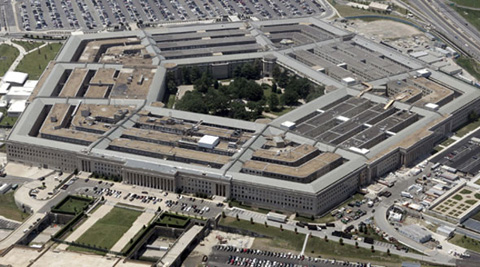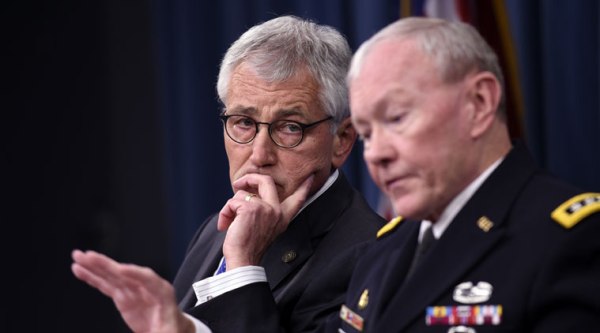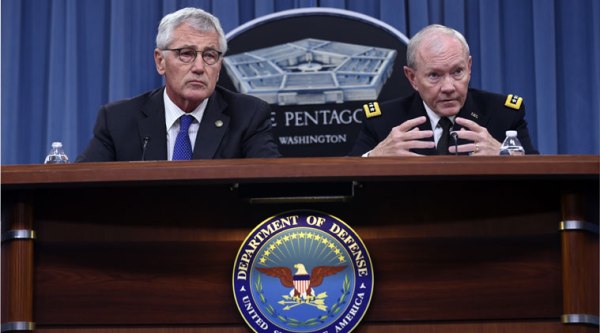Stay updated with the latest - Click here to follow us on Instagram
Pakistan using militants as proxies to counter superior Indian military, says Pentagon
"Pakistan uses these proxy forces to hedge against the loss of influence in Afghanistan and to counter India's superior military."
 White House Press Secretary Josh Earnest insisted that to confront the existential threat that’s posed by ISIS, the nation of Iraq needs to be unified.
White House Press Secretary Josh Earnest insisted that to confront the existential threat that’s posed by ISIS, the nation of Iraq needs to be unified.
In a blunt assessment of terrorist safe havens in Pakistan, the Pentagon has told the US Congress that the country is using militant groups as proxies to counter the superior Indian military. “Afghan-and Indian-focused militants continue to operate from Pakistan territory to the detriment of Afghan and regional stability. Pakistan uses these proxy forces to hedge against the loss of influence in Afghanistan and to counter India’s superior military,” the Pentagon told the Congress in its latest six-monthly report on the current situation in Afghanistan.
“These relationships run counter to Pakistan’s public commitment to support Afghan-led reconciliation. Such groups continue to act as the primary irritant in Afghan-Pakistan bilateral relations,” the Pentagon said in the report running into more than 100 pages.
 Defense Secretary Chuck Hagel listens at left as Joint Chiefs Chairman Gen. Martin E. Dempsey speaks during a briefing at the Pentagon, Thursday, Oct. 30, 2014. (Source: AP)
Defense Secretary Chuck Hagel listens at left as Joint Chiefs Chairman Gen. Martin E. Dempsey speaks during a briefing at the Pentagon, Thursday, Oct. 30, 2014. (Source: AP)
Referring to the attack on the Indian Consulate in Herat, the Pentagon said this was done just ahead of the swearing-in ceremony of Narendra Modi as the Prime Minister of India. “In May of this reporting period, the Indian consulate in Herat Province was attacked by a group of four heavily armed militants. The attack came three days prior to the swearing-in of the new Indian Prime Minister, Narendra Modi. Prime Minister Modi is perceived as being close to Hindu nationalist groups, a fact that may have played into the timing of the attack,” it said.
“In June, the US Department of State announced that the terrorist group Lashkar-e-Taiba was responsible for the attack. Following the attack, former Afghan President Karzai denounced the attack and made strong statements supporting relations with India,” the report said.
 Defense Secretary Chuck Hagel listens at left at Joint Chiefs Chairman Gen. Martin E. Dempsey speaks during a briefing at the Pentagon, Thursday, Oct. 30, 2014. (Source: AP)
Defense Secretary Chuck Hagel listens at left at Joint Chiefs Chairman Gen. Martin E. Dempsey speaks during a briefing at the Pentagon, Thursday, Oct. 30, 2014. (Source: AP)
The Pentagon informed the Congress that India continues to support Afghanistan, believing a secure and stable Afghanistan will benefit the region and facilitate economic corridors into Central Asia. “India and Afghanistan signed a strategic partnership declaration in 2011, which formalised cooperation on governance, economics, commerce, education, public administration, and security and law enforcement,” it said.







